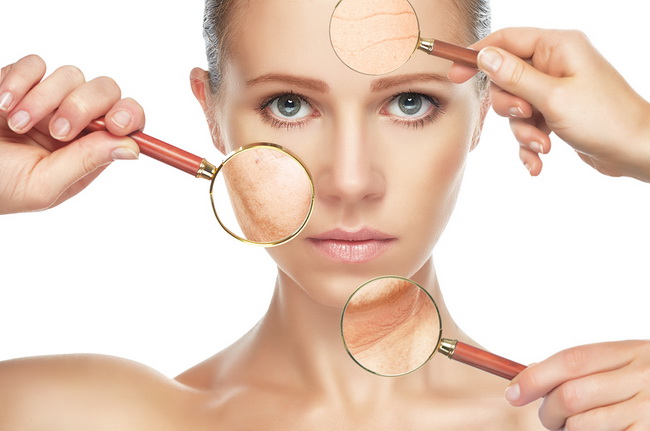- Make It Yourself Lavender Heart-Shaped Bath Bombs!
- 20 Things You Never Knew About “Down There”
- 12 Best Foods For Those Suffering From Arthritis Pain
- 12 Personal Hygiene Mistakes Almost Everyone Makes (Mom Never Told You About #4!)
- 15 Medicinal Plants And Herbs From The Cherokee People
- 12 Mind-Blowing Benefits Of Drinking Coconut Water During Pregnancy
- 12 Outstanding Winter Foods That Won’t Fatten You Up Like A Christmas Turkey
Foods to EAT to Prevent Acne and Foods NOT to Eat

Photo credit: bigstock
Generally speaking, just eliminating the above foods can be enough to clear your skin up naturally. However, if you find that you still get a fair amount of pimples, even if you eat right, try eating more of the foods below. These foods can give you the edge when it comes to stopping acne.
1. Green Tea
Besides being great for your health, green tea can also fight acne. Scientists in South Korea discovered that by applying a cream that contains the same powerful antioxidants that are in green tea (EGCG) to the ears of rabbits, they could reduce the size of the oil glands, which for those with acne are generally enlarged. Another study using human subjects found that this same antioxidant improved acne during an 8 week random clinical trial. Try drinking green tea during the day, and then take those used tea bags and apply them directly to the parts of your face where you tend to get breakouts. Read also how green tea helps reduce the risk of one type of cancer.
2. Oysters
There have been several studies that show that zinc might lessen the effects of acne. Avoid supplements if you can, as getting too much zinc via supplements (more than 100mg each day) can result in serious side effects. You can get plenty of natural zinc in roasted pumpkin seeds, liver, toasted wheat germ and, best of all, yummy oysters.
3. Probiotics
Probiotics reduce inflammation in your digestive system, which leads to a lack of inflammation in your face. In one study done in 2011, it was shown that the micro flora in your intestine affects the inflammation levels throughout the body. It is already well known that pre- and probiotics reduce both oxidative stress and inflammation, which are thought to reduce acne outbreaks. Try eating more sauerkraut, miso soup, pickles, yogurt, kimchi, and kombucha tea.
4. Fruit and Vegetable Juices
This is a terrific way to get more healthy vitamins and reduce acne at the same time. Many vegetables contain beta-carotene, which naturally reduce the oils in your skin and are a natural anti-inflammatory. Dark, leafy green veggies also remove toxins from the blood, which tend to encourage the bacteria that cause acne.
5. Flaxseed Oil or Fish
Americans consume far too many omega-6 fatty acids, which cause inflammation. Eating more omega-3 will balance it out and reduce inflammation. To get more omega-3’s, eat walnuts, fatty fish such as sardines, and flaxseed or flaxseed oil.
References:
Ferdowsian Hr, Levin S, “Does diet really affect acne?” Skin Therapy Lett, 2010 Mar;15(3):1-2,5.





























Carol McLean
Jan 26, 2015 at 5:15 pm
Sugar doesn’t cause pimples. If it did, little kids would be giant zits. Pimples are caused by testosterone (male sex hormone) and have little to do with diet. That’s why teens get pimples. The testosterone is just kicking in a boy’s teen years. It is proof that his body is maturing. In women, because of the fluctuation of estrogen and testosterone during her monthly cycle a woman is more susceptible to pimples when the estrogen in lower. (Women have both male and female hormones – just more of the female). Women who have acne want to talk to their doctor about checking their estrogen levels and maybe stabilizing their estrogen (with
birth control pills).